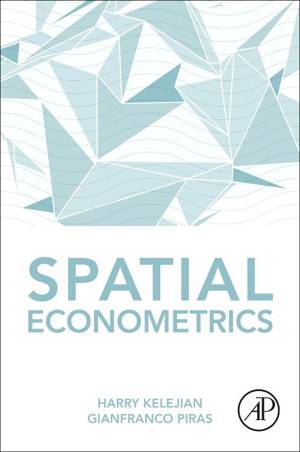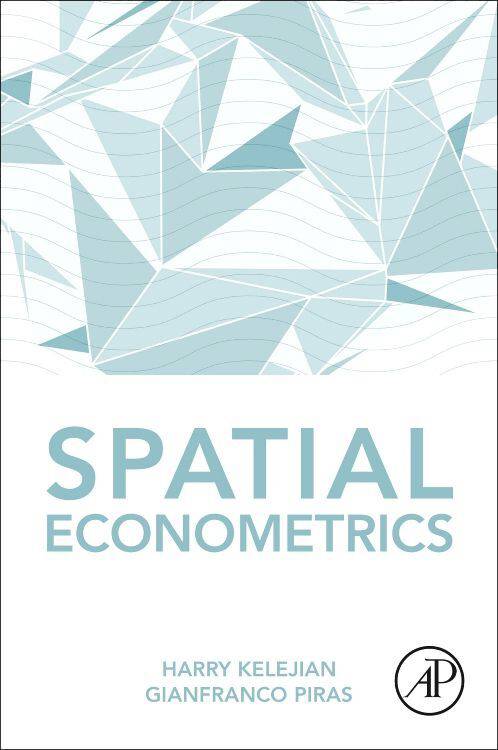
- Retrait gratuit dans votre magasin Club
- 7.000.000 titres dans notre catalogue
- Payer en toute sécurité
- Toujours un magasin près de chez vous
- Retrait gratuit dans votre magasin Club
- 7.000.0000 titres dans notre catalogue
- Payer en toute sécurité
- Toujours un magasin près de chez vous
Description
Spatial Econometrics provides a modern, powerful and flexible skillset to early career researchers interested in entering this rapidly expanding discipline. It articulates the principles and current practice of modern spatial econometrics and spatial statistics, combining rigorous depth of presentation with unusual depth of coverage.
Introducing and formalizing the principles of, and 'need' for, models which define spatial interactions, the book provides a comprehensive framework for almost every major facet of modern science. Subjects covered at length include spatial regression models, weighting matrices, estimation procedures and the complications associated with their use. The work particularly focuses on models of uncertainty and estimation under various complications relating to model specifications, data problems, tests of hypotheses, along with systems and panel data extensions which are covered in exhaustive detail.
Extensions discussing pre-test procedures and Bayesian methodologies are provided at length. Throughout, direct applications of spatial models are described in detail, with copious illustrative empirical examples demonstrating how readers might implement spatial analysis in research projects.
Designed as a textbook and reference companion, every chapter concludes with a set of questions for formal or self--study. Finally, the book includes extensive supplementing information in a large sample theory in the R programming language that supports early career econometricians interested in the implementation of statistical procedures covered.
Spécifications
Parties prenantes
- Auteur(s) :
- Editeur:
Contenu
- Nombre de pages :
- 458
- Langue:
- Anglais
Caractéristiques
- EAN:
- 9780128133873
- Date de parution :
- 25-07-17
- Format:
- Livre broché
- Format numérique:
- Trade paperback (VS)
- Dimensions :
- 152 mm x 229 mm
- Poids :
- 725 g

Les avis
Nous publions uniquement les avis qui respectent les conditions requises. Consultez nos conditions pour les avis.






